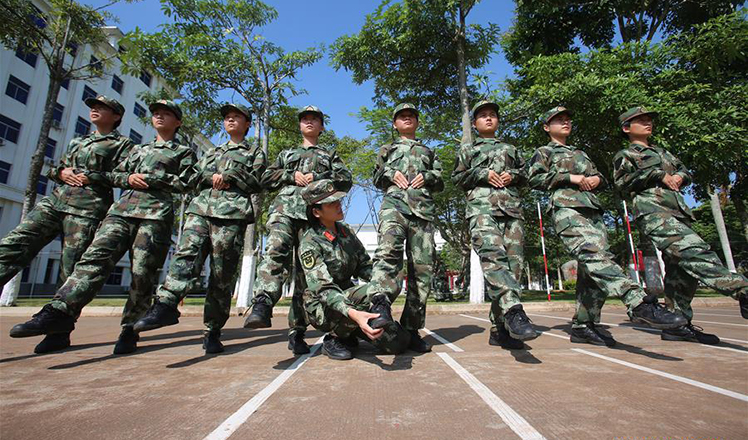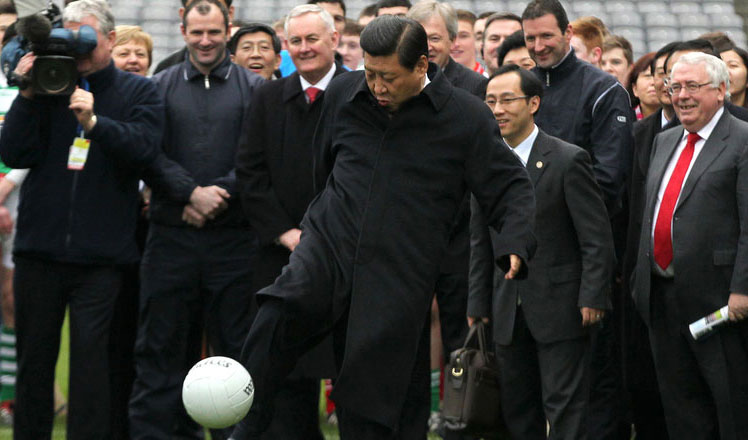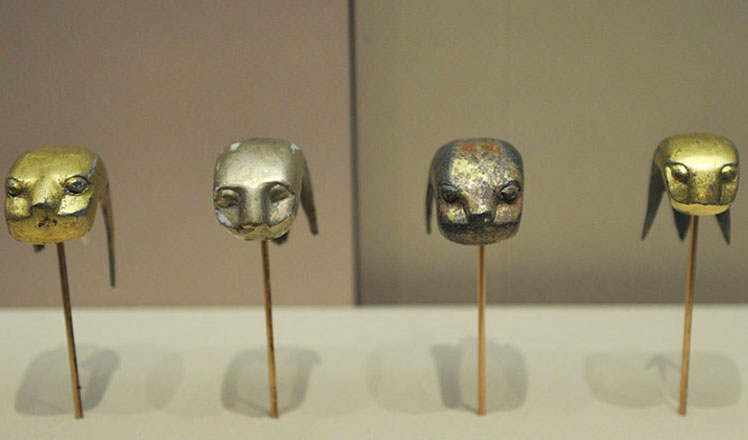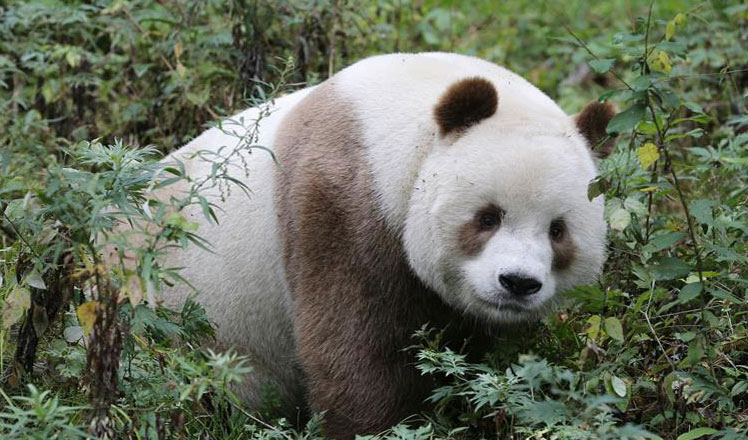You are Where You Live - Reflections on Shanxi
Updated: 2016-10-14 08:56
By Ryan Thorpe(chinadaily.com.cn)
|
||||||||
In front of the International Hotel of Luya Mountain, a large stone sculpture stands. At first, I passed it without a thought, but when I saw it from the other side, I had to pause and examine it closer. From the street, it looked like an ancient Chinese garden sculpture, a massive chunk of red, marbled rock that looked like a bull if you have the right set of eyes and a little imagination. However, the real surprise comes when you walk around to the other side of the sculpture and find a series of minute carvings on the back featuring different scenes from the surrounding mountains. What looks so natural at first is really crafted by a millennium or three of history, a polishing cloth so thick that it removes the rough edges to show a larger form.
Nearby, at the Malun Grassland of Luya Mountain, a large, open pasture hides itself in the folds of the mountains and features bulls not unlike the statue. I walked up to the pasture on a stone-lined trail that weaved through a forest of tall, pencil-thin trees, thinking about how this area once housed the breeding grounds for the war horses of the Tang Dynasty. As I neared the pasture, I transitioned onto a planked walkway that ran like an expressway through the center of the pasture, making all of the cows a roadside attraction.
The land opens up on all sides where war horses once ran, cows now pensively graze as tourists take pictures and prepare their picnics. The large, open space is flanked by mountains on all sides, and is quiet except for the occasional yells from Chinese tourists, which a fellow traveler tells me is done to clear the air of ghosts, an act that makes sense when walking through so much history.
Near the end of the trail, I found a small archery range that backs into a bluff. There are crude bows and arrows leaning on a few stumps on the edge of poles several meters away. I walked down to the range and toyed with the arrows, feeling the notches at the ends of the arrows.
An old man, the archery range administrator, picks up a bow and fires off an arrow. He held the bow sideways, not needing to hold it up to his cheek. The arrow struck the stump. He thrusted the bow into my hands. I asked how much. He shook his head. He wanted nothing. This dip into history required only enough courage to ask.
I tried to shoot as he had, down low and sideways, but my arrow missed the stump. I tried again, but my shot limped towards its target, falling short. The next try, I brought the bow up straight, pulled the string back and into my cheek, and let the arrow fly. It finally stuck. A few spectators cheered, and I shot again and again until the draw and release felt more comfortable, but after several shots, my fingers started to burn against the bow's string.
I handed the bow back to the man who accepted it with a smile. He had watched my efforts and approved. He waved as I walked away, a part of the land he so clearly loved, shaped by the openness of the plains.
Later that afternoon, I found myself driving past a newly constructed gate designed to look like something of the past. It looked almost like a movie set, but the real treasure lingered up the road attached to the side of a mountain - the hanging village in Xuankong County.
This small village community hangs off the side of a cliff, hanging on the precipice over a small chain of waterfalls that terminate in a small pond below the village. I hiked up the mountain to stroll along the walkway of raw trees, loosely bound together and shifting as I walked. I greeted the villagers, and they greeted me back, but as I reached the top, I paused and listened. Deep in the mountains, I heard almost nothing. I heard the sound of a few villagers chopping wood in the forest, but everything else felt silent.
As a I walked around the edge of the cliff to get to the far side for a better photo, I ran into a group of children, chasing one another along the dirt path. A young girl stopped and said hello, asking where I was from. I told her I was from America. She paused, thinking about what that meant, and then asked me what America looked like. I tried to think of an easy expression to say. "Not like here," I said. She smiled. "Hao de," she said and rushed off down the road, pushing and tagging her friends as they ran and played a game I did not understand.
What she had said meant good. She felt happy about the fact that America looked different, and her town remained something special. I watched her and her friends race onto the raw tree trunk walkway with their feet quickly finding the round edges as they ran. They did not know how to fear the heights.
They raced along past the waterfall, and I knew that it was a good thing that this place was unlike my home. It was like the stone in front of the hotel where it looked so natural at first glance, but a closer examination showed the careful attention required to build something that lasts.
The author is professor of Shanghai Jiao Tong University
- Hollande, Merkel, Putin discuss how to implement Minsk peace deal
- Pentagon vows to respond to attempted missile attacks at US destroyer near Yemen
- NASA to invite private companies to install modules on space station
- Trump accused of inappropriate touching by two women
- White House denounces terror attacks in Afghanistan
- Republican voters frown on party establishment's criticism of Donald Trump

 Superheroes make surprise visit to children's hospital
Superheroes make surprise visit to children's hospital
 Female soldiers take training in Hainan
Female soldiers take training in Hainan
 Premier Li vows anew to ease market access
Premier Li vows anew to ease market access
 Cutting-edge gadgets on display at innovation expo
Cutting-edge gadgets on display at innovation expo
 Take a glimpse into soccer-related gifts of Xi
Take a glimpse into soccer-related gifts of Xi
 Precious relics of debauched king on display in Jiangxi
Precious relics of debauched king on display in Jiangxi
 In pics: Britain's Kate visits the Netherlands
In pics: Britain's Kate visits the Netherlands
 Qizai, rare brown giant panda in China
Qizai, rare brown giant panda in China
Most Viewed
Editor's Picks

|

|

|

|

|

|
Today's Top News
Trump outlines anti-terror plan, proposing extreme vetting for immigrants
Phelps puts spotlight on cupping
US launches airstrikes against IS targets in Libya's Sirte
Ministry slams US-Korean THAAD deployment
Two police officers shot at protest in Dallas
Abe's blame game reveals his policies failing to get results
Ending wildlife trafficking must be policy priority in Asia
Effects of supply-side reform take time to be seen
US Weekly

|

|








